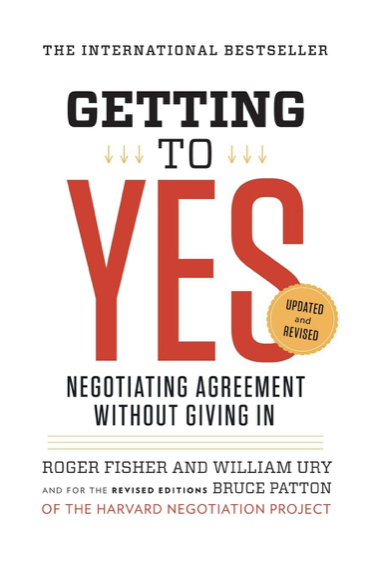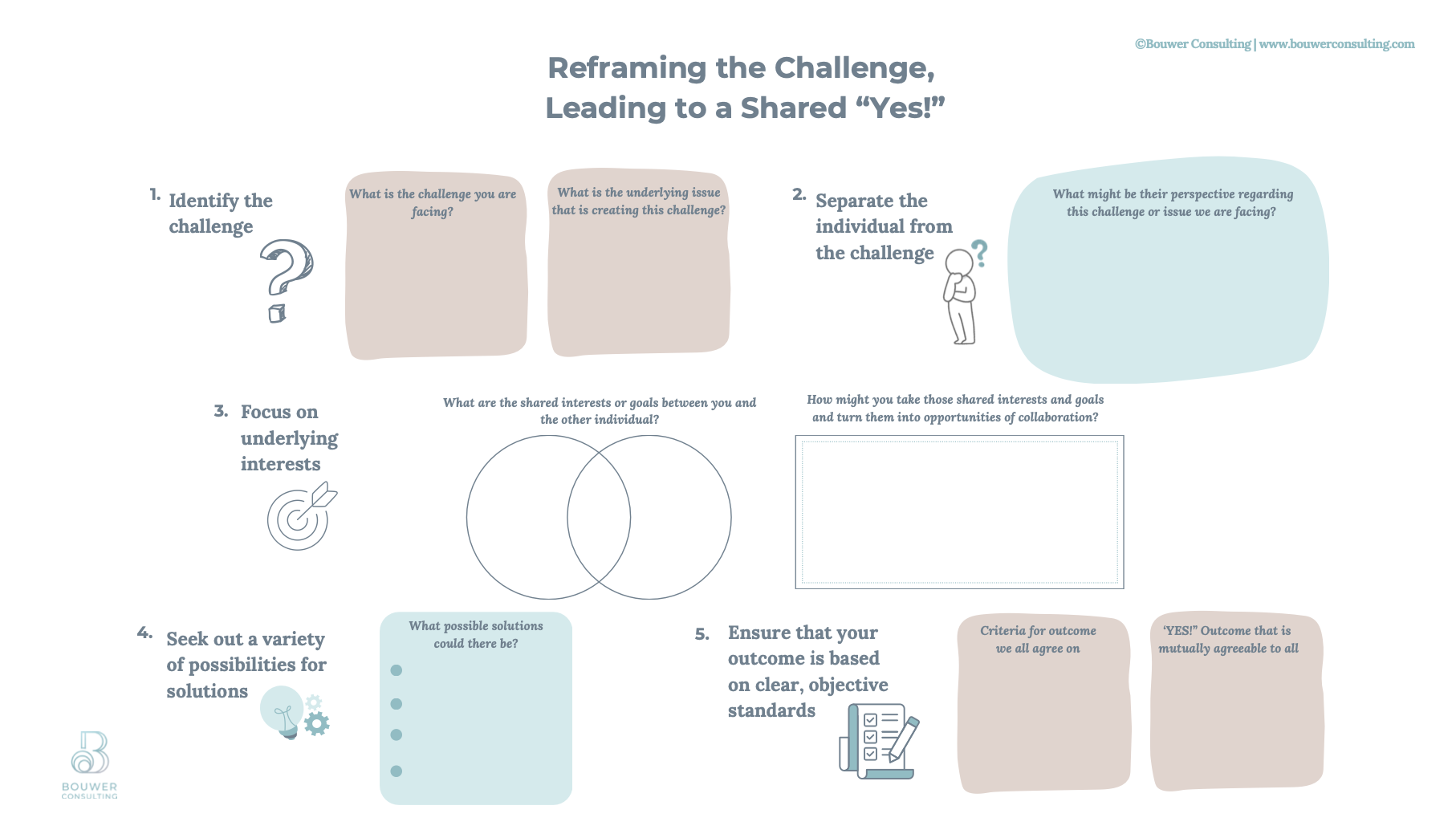#4: Reframing the Challenge
“Often times by reframing the challenge faced, the problem no longer appears to be the same. The perspective changes and things we overlooked the first time become clear.”
BOOK RECOMMENDATION
International Best Seller: Getting to YES: Negotiating Agreement Without Giving In by Roger Fisher and William Ury
Click below for our free PDF graphic organizer to help you Reframe Your Challenge
The heavy air was hot with humidity that only comes from after a tropical rainstorm. In the background, a creaky fan whirled, attempting to blow cold air but was more symbolic than of any actual use.
Sitting across from me was the founder of a small, local NGO in Southeast Asia. She let out a heavy sigh as she explained her current dilemma. While the last program they had offered for a nearby province was a success, her desire was to create a wholistic program that everyone in the community would benefit from.
However, new directives from the provincial authorities required her to pivot and weave 4 seemingly different sectors with different desires into 1 project with little budget, direction, or manpower to do so. Her next step was to provide an outline of the new program so they could begin their work.
I could sense her exasperation. At first glance it seemed like one more barrier standing in the way of helping those who needed it the most.
Competing interests from the different leading authorities seemed to have lost sight of the vision for what this new program was to be about and the MOU was filled with seemingly ‘non-essentials’.
After reading the MOU several times, I paused and asked the question:
What if we took a step back and reframed the starting question to be, “What does a “holistic” program mean to these sectors instead of what does “holistic” mean to your organization?”
Often times by reframing the challenge faced, the problem no longer appears to be the same.
When perspectives change, things we overlooked the first time become clear.
#4:
Reframing the Challenge
Sitting across from the founder, I was reminded of a book I had read years ago in my crisis negotiation’s class, Getting to Yes: Negotiating an Agreement Without Giving In by Roger Fisher and William Ury (published by Penguin Books). In it, they discuss the importance of principled negotiations, and unpack each principle by providing multiple clear examples.
These principles can basically be summarized in 4 points:
1) People: Recognize the individuals involved and separate them from the issue at hand.
2) Interests: Focus on the underlying interests instead of getting stuck in fixed positions.
3) Options: Consider a variety of possibilities before reaching a decision.
4) Criteria: Make sure that the outcomes are based on objective standards.
When we take time to separate people from the challenges, it allows us to reframe our thinking and begin to see one another as partners having mutual interests.
This in turn not only provides space, but it actually encourages us to generate multiple possibilities that could be plausible solutions that are mutually beneficial since we are no longer focused on the fixed position we started with.
Finally, having specific, objective criteria ensures that each party leaves feeling that a win-win bas been achieved.
Working together, over the next several meetings, we went through months of meeting minutes and drafts of different documents. By reframing the question, together we were able to identify themes that each sector valued. These themes, often taken from the seemingly ‘non-essentials’, were then woven into the fabric of planning for the new program.
What were my final takeaways from this experience?
Did this take time? Definitely, more than we thought and there were times we had to circle back to clarify our understanding.
Was it easy to reframe perspective? Not always- human nature is such that it can be easy to become entrenched in our own position.
Was it worth it? Absolutely- the program that was designed had not only a greater depth than initially envisioned, but when presented, the stakeholders were extremely pleased that it met their community’s needs in ways that were complimentary.
Often times when it seems like there is an impasse and expectations are competing, there is still a way to ensure that all parties get to ‘Yes!’. It takes the willingness to reframe our challenges and put aside our own agenda for a moment. By being open to these 4 principles: People, Interest, Options, and Criteria, success can be found for all.
If you’d like help reframing a challenge you have, schedule a free 30 minute exploratory call with us!



